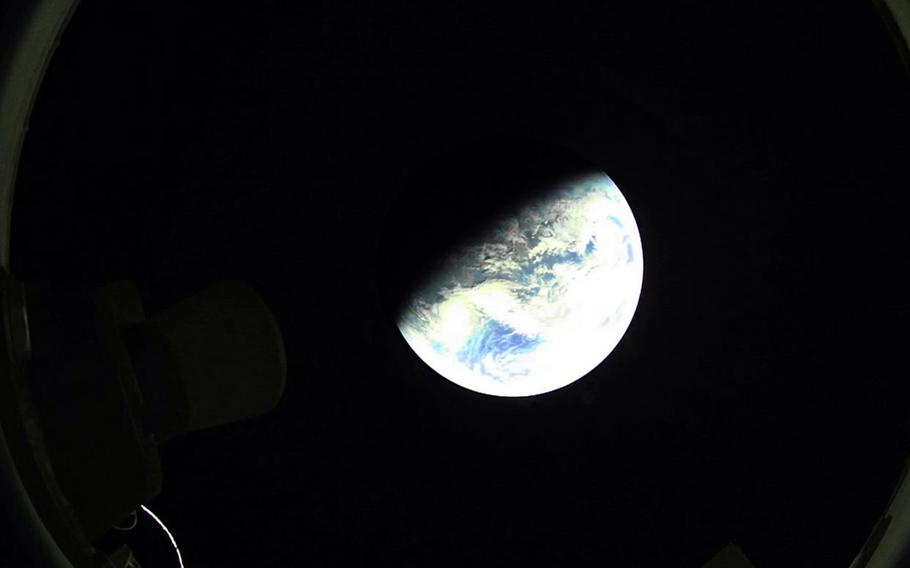
North Korea launches a Hwasongpho-19 intercontinental ballistic missile, Oct. 31, 2024, in this image from the state-run Rodong Sinmun newspaper. (Rodong Sinmun)
North Korea’s state-run news agency has criticized the establishment of a new U.S. Space Force command in Japan as part of Washington’s broader plan to seek “regional hegemony.”
The creation of the U.S. Space Forces Japan is another attempt by the United States “to contain its strategic rivals and establish military supremacy in the Asia-Pacific region,” Ri Song Jin, a researcher with the National Aerospace Technology Administration, said in a column published Saturday by the Korean Central News Agency.
Space is a “common asset of the whole mankind,” and the U.S. is transforming it into a battlefield with its regional Space Force commands, he wrote.
The command’s activation on Dec. 4 at Yokota Air Base in western Tokyo marked “a pivotal moment” for regional space operations, Brig. Gen. Anthony Mastalir, commander of the Hawaii-based U.S. Space Forces Indo-Pacific, told reporters at a press conference the previous day.
“Space is becoming increasingly congested, contested and critical to national security,” he said. “This activation is a critical step in enhancing the integration and coordination of space capabilities with Japan.”
Ri accused Mastalir of trying to “deceive the international community.”
“The offensive mission of the U.S. Space Force and its continuous expansion into the overseas region clearly prove that such military moves are not aimed to cope with someone’s ‘threat,’” he wrote.
U.S. Space Forces Japan did not immediately respond to an emailed request for comment Tuesday afternoon.
The Space Force launched its first subordinate command in the Far East at Osan Air Base, South Korea, on Dec. 14, 2022.
U.S. Space Forces Korea is tasked with providing missile warning, position navigation and timing, and regional satellite communication services, according to U.S. Forces Korea, the command responsible for the 28,500 American troops on the peninsula.
The subordinate command in South Korea has since participated in large-scale military drills between Washington and Seoul, including Ulchi Freedom Shield in August.
Details of the command’s role during the exercise were not disclosed; however, a USFK news release said it “provided critical support in monitoring and defending against potential space-based threats.”
North Korean leader Kim Jong Un said he would boost Pyongyang’s space presence and place three military satellites in orbit by this year.
The communist regime’s first and last satellite launch so far this year failed on May 27, according to KCNA and South Korea’s military.
Eight days after that launch, South Korea formally suspended a military deconfliction agreement with the North that banned the two countries from holding artillery drills and military flights near the border separating the Korean Peninsula.
North Korea made three attempts in 2023 on May 31, Aug. 24 and Nov. 21. Only the November launch was successful.
Seoul and Washington consider the North’s satellite launches a violation of U.N. Security Council resolutions that prohibit it from using ballistic missile technology.